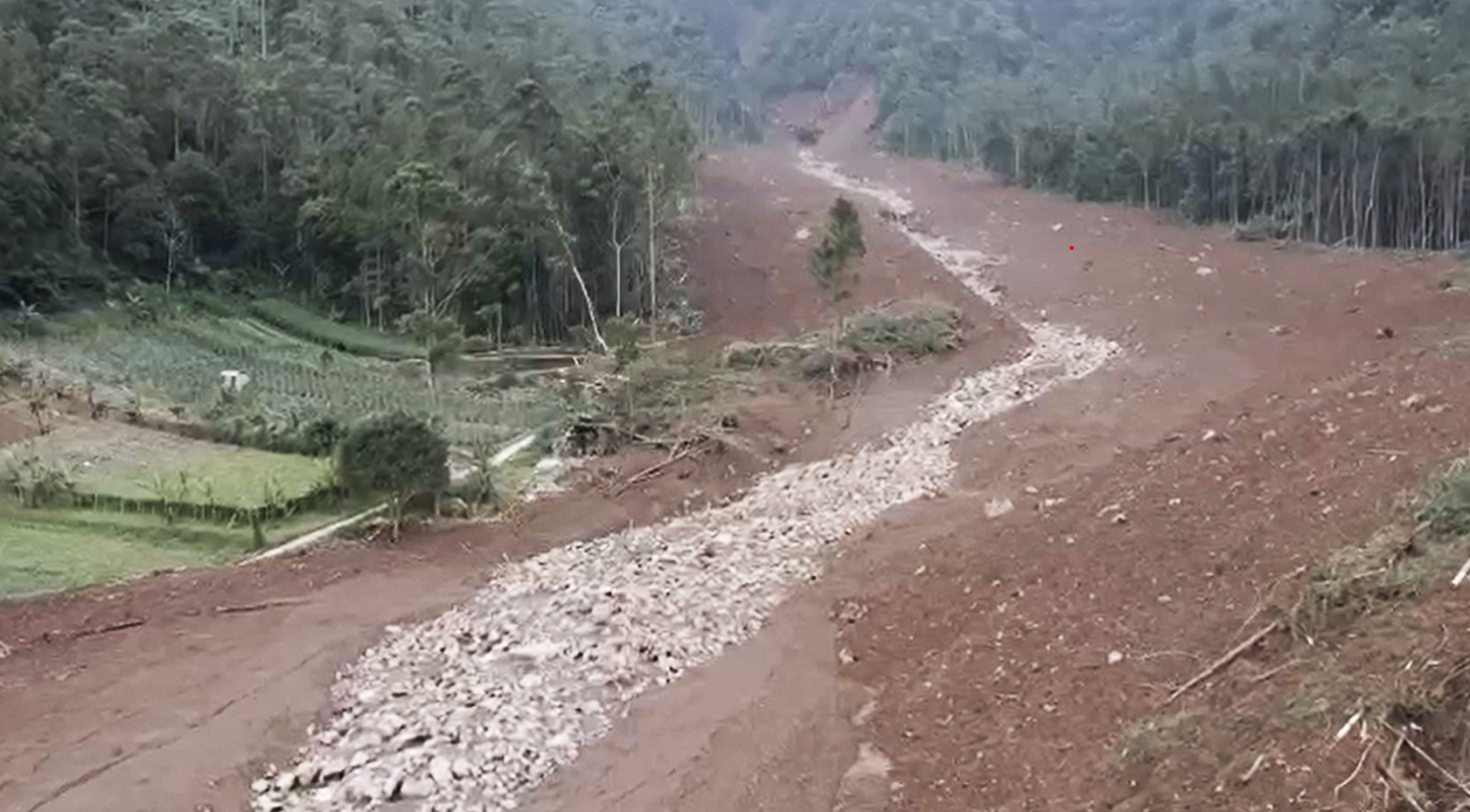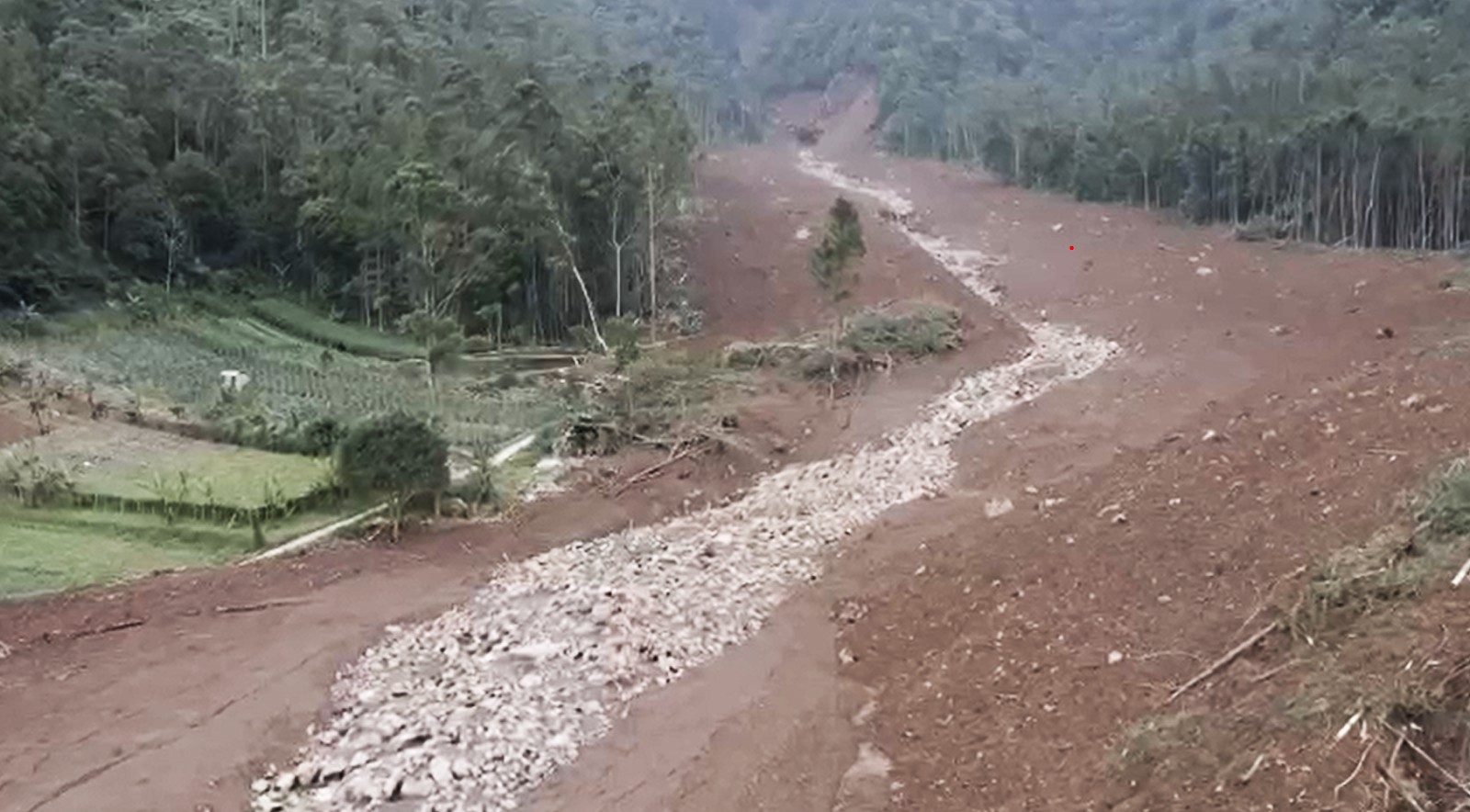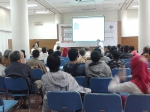Relate Nature with Industy, HMRH Organize Seminar in ITB
By Nida Nurul Huda
Editor Nida Nurul Huda

BANDUNG, itb.ac.id - Bio-Engineering Student Association ITB (ITB HMRH) held External Day events in the form of seminars with the theme of "Harmony between Nature and Industry". The event was held at the Seminar Room Jatinangor ITB Rectorate Building on Saturday (02/15/2014). In the seminar, it was discussed how nature as a source to establish a harmony with the industry as the engine of human life.
Bio-engineering as one of the courses ITB engaged in bio-industry becomes important in order to see the harmony between nature and industry. Nature and industry are two important parts for Bio-engineering study program; industry who will process natural resources for the benefit of mankind. "In this event we will examine bio-industry and the impact on the environment and society," M. Rifqy Ghiffary (Biological Engineering 2011) said as chairman of the event.
The event was opened by the Dean of the School of Biological Imu and Technology (SITH ITB), Prof. Suryati Tati, who explains that the life science industry will be the key of the future. This is evidenced by the many sectors currently involving nature, food, forest, bio-product, health, and others. The seminar also featured several speakers who were Yani Septiani, MSc. (International Tropical Timber Organization Project Coordinator, Ministry of Forestry Republic of Indonesia), Ivan Winangun (Bio-entrepreneur), Rifina Affandi, S.si Apt (Research and Development PT. Paragon, Wardah Cosmetic), Putranto Andi Nugroho (Google Student Ambassador 2012), Agus Widiarto (Vice-CTA for Clime-GFA), Nina (Germany, Strategic Area Manager of Green Economy, For Clime-GIZ), Sofia (Brazil, participants AISEC).
Bio-industry's success in empowering communities and enhancing national productivity was proven by Ivan Winangun through his presentation in the seminar. This 21-year-old-guy has developed technology Saturated Water Aquaculture (BJA) on soybean plants in the tidal area, Palembang. Average national soybean production was only 1.3 tons / ha in the land before. Then, he was able to raise 1000 ha with an average of 4 tons / ha. He engaged in this field because he saw Indonesian imports were very high for soybeans. It is certainly an issue for local farmers, for which he created the technology BJA.
The natural science also opened vast opportunities for practitioners of biological sciences at the same time meet the challenges of the world such as bio-product. It was submitted by Rifina Affandi in the field of beauty or cosmetics. Trends in the world are turning to products made from natural and organic make bio-product demand is very high. Natural Cosmetics now becomes a Global Trends Cosmetic. This is where the challenge of life science practitioners to discover what material and how the process is suitable for human welfare.
The event was opened by the Dean of the School of Biological Imu and Technology (SITH ITB), Prof. Suryati Tati, who explains that the life science industry will be the key of the future. This is evidenced by the many sectors currently involving nature, food, forest, bio-product, health, and others. The seminar also featured several speakers who were Yani Septiani, MSc. (International Tropical Timber Organization Project Coordinator, Ministry of Forestry Republic of Indonesia), Ivan Winangun (Bio-entrepreneur), Rifina Affandi, S.si Apt (Research and Development PT. Paragon, Wardah Cosmetic), Putranto Andi Nugroho (Google Student Ambassador 2012), Agus Widiarto (Vice-CTA for Clime-GFA), Nina (Germany, Strategic Area Manager of Green Economy, For Clime-GIZ), Sofia (Brazil, participants AISEC).
Bio-industry's success in empowering communities and enhancing national productivity was proven by Ivan Winangun through his presentation in the seminar. This 21-year-old-guy has developed technology Saturated Water Aquaculture (BJA) on soybean plants in the tidal area, Palembang. Average national soybean production was only 1.3 tons / ha in the land before. Then, he was able to raise 1000 ha with an average of 4 tons / ha. He engaged in this field because he saw Indonesian imports were very high for soybeans. It is certainly an issue for local farmers, for which he created the technology BJA.
The natural science also opened vast opportunities for practitioners of biological sciences at the same time meet the challenges of the world such as bio-product. It was submitted by Rifina Affandi in the field of beauty or cosmetics. Trends in the world are turning to products made from natural and organic make bio-product demand is very high. Natural Cosmetics now becomes a Global Trends Cosmetic. This is where the challenge of life science practitioners to discover what material and how the process is suitable for human welfare.



.jpg)
.jpg)


